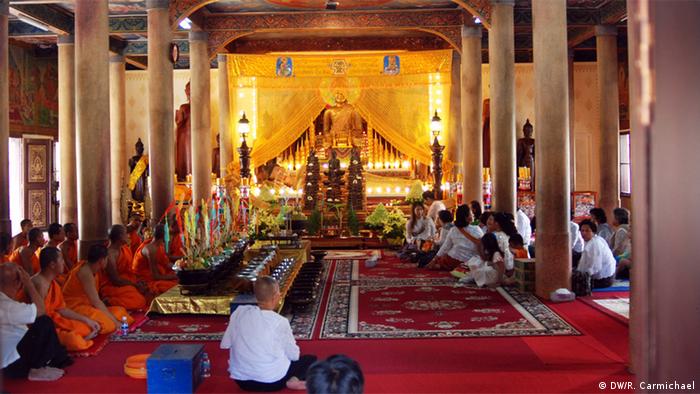Almost 40 years after the deaths of nearly one in four people during Pol Pot's rule of Cambodia in the 1970's, the Southeast Asian country's long road to reconciliation remains seriously underfunded.
In 2011, two Cambodian organizations set out to reconcile residents of adjacent villages in the southern province of Kampot. Their dispute was no small matter: two women in the first village believed that a Khmer Rouge cadre living in the other village had executed the husband of one of the women and the father of the other after arresting them. The events took place during Pol Pot's murderous 1970s rule.
For 30 years the two women had not spoken to him. And it wasn't only these three people whose relations were paralyzed - during the Khmer Rouge's rule the residents of the second village had been given dominion over their relatively wealthier neighbors in the first. Those living in the first village were seen as class enemies, and by 1979 many had been executed.
The reconciliation attempt started by the two organizations also aimed at studying the dynamics around victims reconciling with perpetrators, says Tim Minea, the executive director of Kdei Karuna, one of the organizations involved. Decades of antipathy meant this process was fraught from the start. "At the beginning of the project I asked one of the victims: ‘Do you want to meet him?' And she said: 'I don't want to see him, not even his footprints'," Minea, a Cambodian sociologist and anthropologist, tells DW. Read the full article at Deutsche Welle.


No comments:
Post a Comment